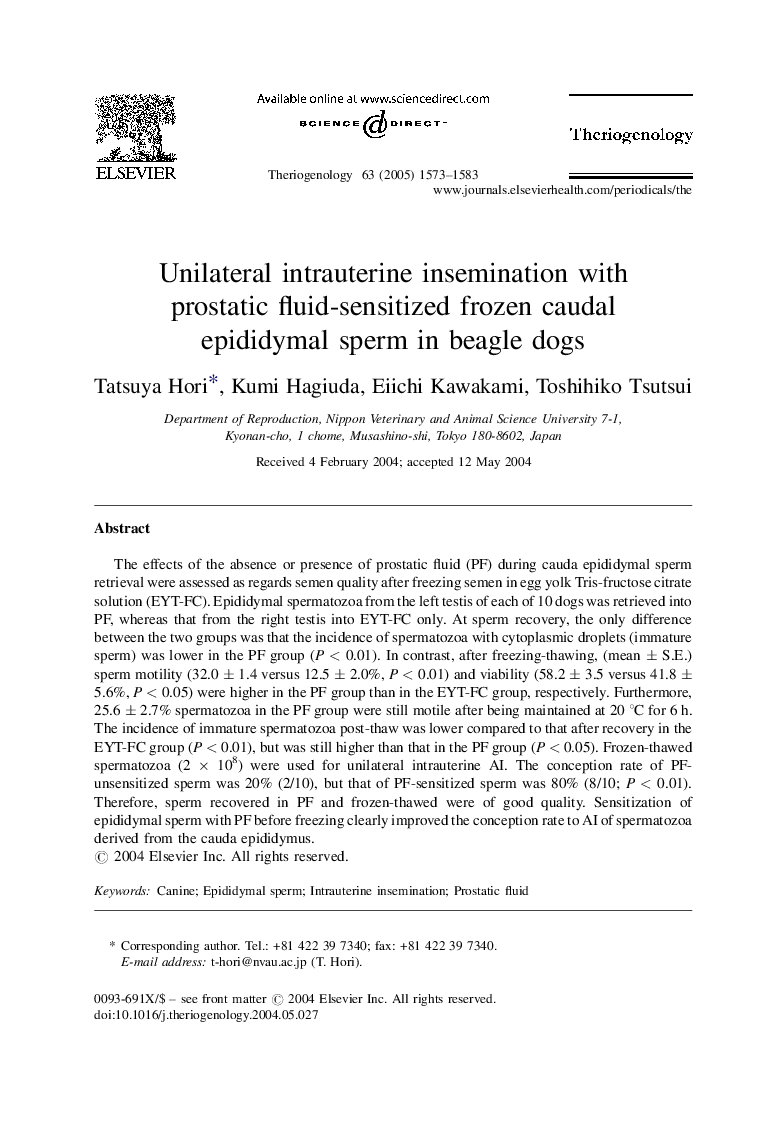| Article ID | Journal | Published Year | Pages | File Type |
|---|---|---|---|---|
| 10893243 | Theriogenology | 2005 | 11 Pages |
Abstract
The effects of the absence or presence of prostatic fluid (PF) during cauda epididymal sperm retrieval were assessed as regards semen quality after freezing semen in egg yolk Tris-fructose citrate solution (EYT-FC). Epididymal spermatozoa from the left testis of each of 10 dogs was retrieved into PF, whereas that from the right testis into EYT-FC only. At sperm recovery, the only difference between the two groups was that the incidence of spermatozoa with cytoplasmic droplets (immature sperm) was lower in the PF group (P < 0.01). In contrast, after freezing-thawing, (mean ± S.E.) sperm motility (32.0 ± 1.4 versus 12.5 ± 2.0%, P < 0.01) and viability (58.2 ± 3.5 versus 41.8 ± 5.6%, P < 0.05) were higher in the PF group than in the EYT-FC group, respectively. Furthermore, 25.6 ± 2.7% spermatozoa in the PF group were still motile after being maintained at 20 °C for 6 h. The incidence of immature spermatozoa post-thaw was lower compared to that after recovery in the EYT-FC group (P < 0.01), but was still higher than that in the PF group (P < 0.05). Frozen-thawed spermatozoa (2 à 108) were used for unilateral intrauterine AI. The conception rate of PF-unsensitized sperm was 20% (2/10), but that of PF-sensitized sperm was 80% (8/10; P < 0.01). Therefore, sperm recovered in PF and frozen-thawed were of good quality. Sensitization of epididymal sperm with PF before freezing clearly improved the conception rate to AI of spermatozoa derived from the cauda epididymus.
Related Topics
Life Sciences
Agricultural and Biological Sciences
Animal Science and Zoology
Authors
Tatsuya Hori, Kumi Hagiuda, Eiichi Kawakami, Toshihiko Tsutsui,
